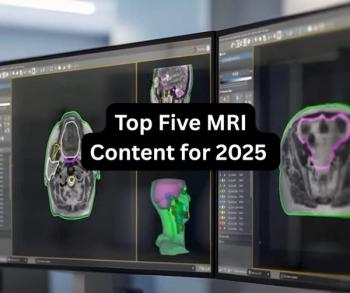
Cardiac MRI Plus Artificial Intelligence Improves Heart Attack, Stroke Prediction
Adding artificial intelligence to cardiac MRI instantaneously and accurately measures blood flow.
Doctors may be able to predict the chances of death, heart attack, and stroke in patients by using cardiac magnetic resonance imaging (MRI) paired with artificial intelligence (AI), potentially making treatment recommendations that will improve patient blood flow and outcomes.
The study, conducted by researchers with University College London, was published Friday in the journal
Investigators examined and compared the AI-generated blood flow results in patients collected from cardiac MRI scans to assess their risk for an adverse cardiac episode. This analysis showed patients with limited blood flow were more likely to experience negative heart-related outcomes.
“Artificial intelligence is moving out of the computer labs and into the real world of healthcare, carrying out some tasks better than doctors could do alone,” said University College London researcher James Moon, M.D., in a press statement. “We have tried to measure blood flow manually before, but it is tedious and time-consuming, taking doctors away from where they are needed most, with their patients.”
Successfully applying AI is important because reduced blood flow is typically treatable, but the recommended procedures are invasive, such as fractional flow reserve, and carry risks. Existing cardiac MRI is a non-invasive assessment tool, but analyzing images well enough to make a confident diagnosis or suggest treatment options is difficult. This study is the first time AI has been applied to perfusion imaging.
To test whether results could be improved, researchers added a new automated AI technique to routine cardiac MRI scans from 1,049 patients referred for perfusion testing who were both suspected and knowns to have coronary artery disease. The average patient age was 61 years, and 67 percent of participants were male. Overall, 60 percent had high blood pressure, 49 percent had high cholesterol, and 30 percent had undergone previous vascularization.
By applying their AI algorithm, researchers were able to automatically determine stress myocardial blood flow (MBF) and myocardial perfusion reserve (MPR). Investigators were able to instantly alert patient-care teams to the patient’s heart muscle blood flow measurements. The results with AI were prognostic, they said, highlighting that increased MBF and MPR were associated with a reduced risk of death by 36 percent and 52 percent, respectively.
The research team followed up with study participants after 605 days. During that time 42 individuals (4 percent) died, and 174 patients (16.6 percent) experienced major adverse cardiac events. Based on these findings, the team reported, it is possible to accurately predict which patients are more likely to experience heart attack, stroke, heart failure, and death.
“For the first time, we have shown that automatically-derived MBF and MPR have prognostic relevance beyond the detection of regional ischemia,” they wrote. “This provides the opportunity for quantitative perfusion analysis to be applied in the routine clinical setting to potentially risk stratify beyond the detection of regional ischemia alone.”
Newsletter
Stay at the forefront of radiology with the Diagnostic Imaging newsletter, delivering the latest news, clinical insights, and imaging advancements for today’s radiologists.












